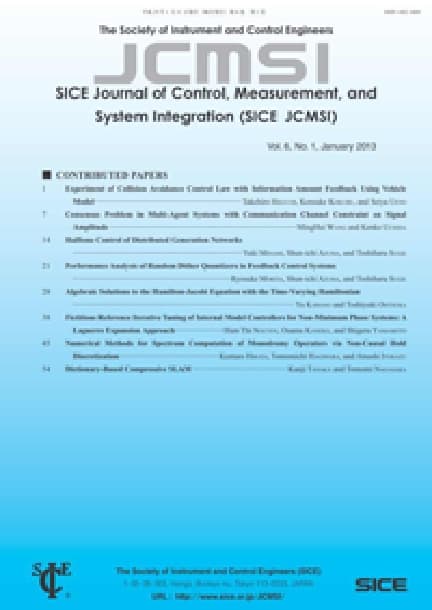Stability of Dynamical Systems with Discontinuous Motions:
Anthony N. MICHEL, Ling HOU
pp. 411-422
DOI:
10.9746/jcmsi.1.411Abstract
In this paper we present a stability theory for discontinuous dynamical systems (DDS): continuous-time systems whose motions are not necessarily continuous with respect to time. We show that this theory is not only applicable in the analysis of DDS, but also in the analysis of continuous dynamical systems (continuous-time systems whose motions are continuous with respect to time), discrete-time dynamical systems (systems whose motions are defined at discrete points in time) and hybrid dynamical systems (HDS) (systems whose descriptions involve simultaneously continuous-time and discrete-time). We show that the stability results for DDS are in general less conservative than the corresponding well-known classical Lyapunov results for continuous dynamical systems and discrete-time dynamical systems. Although the DDS stability results are applicable to general dynamical systems defined on metric spaces (divorced from any kind of description by differential equations, or any other kinds of equations), we confine ourselves to finite-dimensional dynamical systems defined by ordinary differential equations and difference equations, to make this paper as widely accessible as possible. We present only sample results, namely, results for uniform asymptotic stability in the large.









